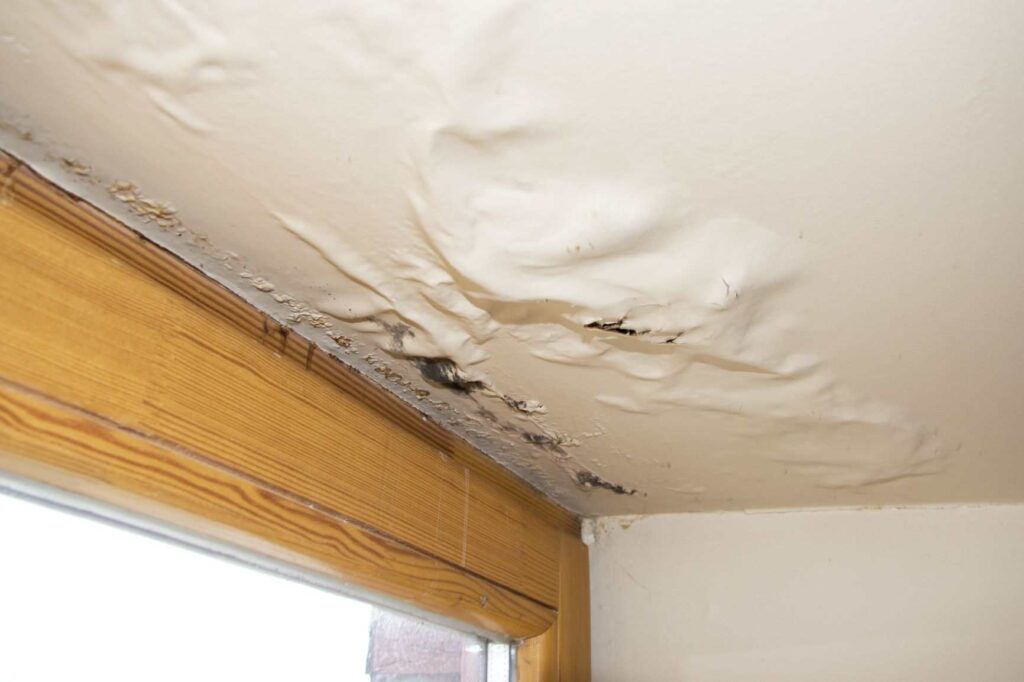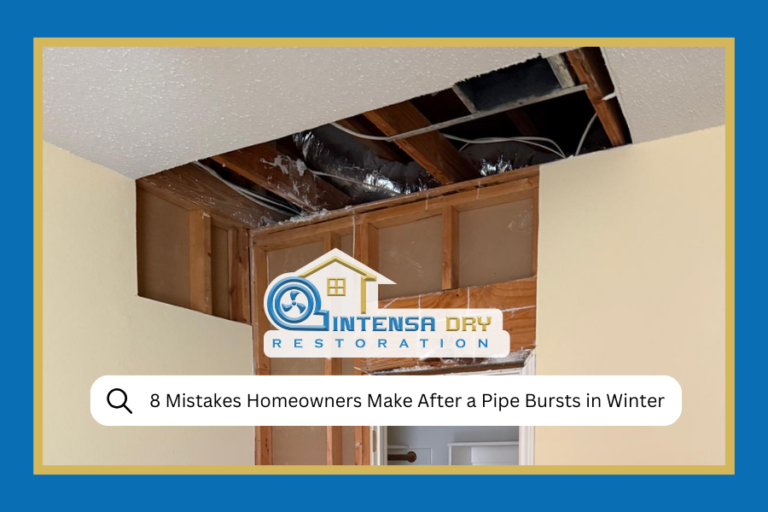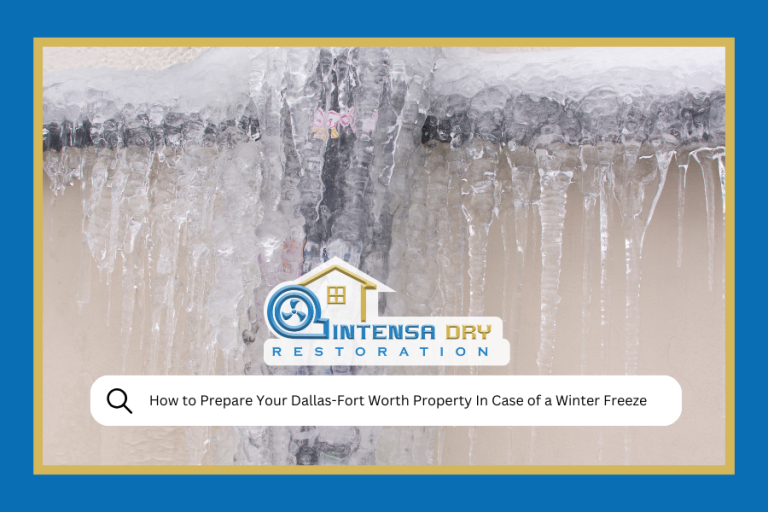Water damage can wreak havoc on your HVAC (Heating, Ventilation, and Air Conditioning) system, leading to costly repairs and potential health hazards. In Plano, where weather fluctuations are common, it’s crucial to prioritize preventive maintenance. This article by Instensa Dry explores essential tips to safeguard your HVAC system from water damage, offering insights into identifying potential issues and implementing proactive measures. By understanding the risks and taking proactive steps, Plano residents can ensure their HVAC systems operate efficiently, promoting indoor comfort and longevity while minimizing the impact of water-related challenges. Discover how a well-maintained HVAC system can contribute to a healthier and more sustainable home environment in Plano.

Understanding the Risks of Water Damage
Comprehending the potential risks associated with water damage is paramount for homeowners in Plano, especially concerning their HVAC systems. Water damage poses a significant threat, as it can compromise the structural integrity of HVAC components, leading to malfunctions and reduced efficiency. Additionally, stagnant water creates a breeding ground for mold and mildew, contributing to indoor air quality issues and potential health hazards. This section delves into the nuanced risks, emphasizing the importance of proactive measures. By gaining insights into the various threats posed by water damage, homeowners can take informed steps to safeguard their HVAC systems and maintain a healthier living environment in Plano.
Common Causes of Water Damage to HVAC Systems
Several common causes can lead to water damage in HVAC (Heating, Ventilation, and Air Conditioning) systems, requiring vigilance from homeowners in Plano. Firstly, clogged or blocked condensate drains can result in water overflow, damaging system components. Refrigerant leaks, a second culprit, not only reduce cooling efficiency but can also cause water accumulation. Poorly insulated or disconnected ducts may lead to condensation problems, contributing to water damage. Additionally, improper installation, aging equipment, and severe weather conditions can exacerbate the risk. Understanding these prevalent causes empowers Plano residents to address potential issues promptly, preserving their HVAC system’s functionality and preventing costly repairs.
Signs of Water Damage: What to Look For
Recognizing early signs of water damage is crucial for Plano homeowners to protect their HVAC systems. One evident indicator is visible leaks or pooling water around the unit, suggesting potential issues with drainage or internal components. Stains on walls or ceilings, often accompanied by a musty odor, indicate hidden water damage and the presence of mold. Reduced cooling efficiency, unusual sounds, or increased energy bills may signal internal system damage due to water infiltration. Regularly inspecting these signs allows for prompt intervention, minimizing the impact on the HVAC system and preventing further damage to both the equipment and the indoor environment in Plano.
Impact of Water Damage on HVAC Efficiency
Water damage can significantly impair the efficiency of HVAC (Heating, Ventilation, and Air Conditioning) systems, posing detrimental effects on performance and longevity. Accumulated moisture can corrode internal components, diminishing their effectiveness and leading to malfunctions. Damaged insulation reduces system efficiency, causing increased energy consumption and higher utility bills. Additionally, water-related issues may compromise the system’s ability to regulate temperature consistently, resulting in discomfort and uneven heating or cooling. By understanding the profound impact of water damage on HVAC efficiency, homeowners in Plano can prioritize preventive measures and timely maintenance to ensure optimal system functionality, energy conservation, and prolonged equipment lifespan.
Proactive Measures for Preventing Water Damage
Implementing proactive measures is essential to prevent water damage and maintain the longevity of HVAC systems in Plano. Regular inspection and cleaning of condensate drains, ensuring they are free from clogs or blockages, can prevent water overflow. Adequate insulation for pipes and ductwork minimizes condensation issues. Installing a condensate pump adds an extra layer of protection by efficiently removing excess water. Regular HVAC system maintenance, including inspections by professionals, helps identify and address potential vulnerabilities. Properly positioning outdoor units away from potential water sources and establishing routine checks during extreme weather conditions further fortify the system. These proactive steps empower homeowners to safeguard their HVAC systems against water-related challenges in Plano.
Regular HVAC Inspections: A Key to Water Damage Prevention
Regular HVAC inspections emerge as a key strategy for preventing water damage and ensuring the optimal functioning of systems in Plano. Scheduled check-ups by qualified professionals allow early detection of potential issues like leaks, clogs, or worn components that may lead to water damage. Inspections encompass evaluating drainage systems, detecting refrigerant leaks, and assessing overall system efficiency. Timely identification and resolution of these concerns prevent water-related damage, ensuring the HVAC system operates seamlessly. With consistent inspections, homeowners in Plano can proactively address vulnerabilities, enhancing the reliability of their HVAC units and mitigating the risk of water-related complications.
Importance of Proper Drainage in HVAC Systems
Proper drainage in HVAC (Heating, Ventilation, and Air Conditioning) systems holds paramount importance for homeowners in Plano. Efficient drainage prevents water accumulation and potential damage by safely directing condensate away from crucial components. Inadequate drainage can lead to clogs, overflows, and moisture-related issues, jeopardizing system functionality. A well-designed and maintained drainage system not only safeguards the HVAC unit but also prevents mold growth and water damage to surrounding structures. Recognizing the significance of proper drainage allows Plano residents to prioritize preventive measures, ensuring their HVAC systems operate effectively, promoting indoor comfort, and minimizing the risks associated with water-related challenges.
Ensuring Adequate Ventilation to Mitigate Moisture
Ensuring adequate ventilation is a crucial strategy for Plano homeowners to mitigate moisture-related challenges in HVAC (Heating, Ventilation, and Air Conditioning) systems. Proper ventilation helps regulate indoor humidity levels, preventing excess moisture buildup that could lead to water damage and mold growth. Adequate air circulation allows the HVAC system to efficiently remove moisture from the air, reducing the risk of condensation on components. Ventilation strategies, such as using exhaust fans and maintaining balanced airflow, contribute to a healthier indoor environment. By prioritizing ventilation, residents in Plano can proactively manage moisture, safeguarding their HVAC systems and maintaining optimal indoor air quality.
Choosing the Right Location for HVAC Units
Selecting the right location for HVAC (Heating, Ventilation, and Air Conditioning) units is a critical decision for Plano homeowners aiming to prevent water damage and enhance system efficiency. Outdoor units should be positioned on level ground, elevated above potential flood areas, to avoid water accumulation. Adequate spacing from vegetation and structures promotes proper airflow, preventing debris buildup and potential obstructions. Sheltering units from direct sunlight helps maintain optimal operating temperatures. Indoor components, such as air handlers, should be placed in well-ventilated areas to minimize condensation. Thoughtful placement of HVAC units ensures longevity, reduces the risk of water-related issues, and optimizes overall system performance in Plano.
Professional Help
Seeking professional help is imperative for Plano homeowners to address and prevent potential water damage in their HVAC systems. Trained technicians possess the expertise to conduct thorough inspections, identifying hidden issues that could lead to leaks or malfunctions. Regular professional maintenance includes tasks like cleaning condensate drains, checking refrigerant levels, and ensuring proper insulation—all crucial for water damage prevention. In the event of a problem, prompt and skilled intervention can mitigate damage, preventing costly repairs. Homeowners are encouraged to schedule routine HVAC service appointments, relying on professionals to uphold the efficiency and integrity of their systems, ultimately ensuring a comfortable and problem-free living environment in Plano.
FAQs:
What happens if water gets in HVAC?
Water in HVAC can cause corrosion, mold growth, and damage to internal components, leading to system malfunctions.
Can water damage AC unit?
Yes, water can damage the AC unit by corroding parts, reducing efficiency, and causing electrical issues.
What is the maintenance required for HVAC system?
Regular maintenance includes cleaning filters, inspecting ducts, checking refrigerant levels, and ensuring proper drainage.
How to do preventive maintenance for HVAC system?
Preventive maintenance for HVAC involves regular inspections, cleaning condensate drains, and addressing potential issues before they escalate.
Conclusion
In conclusion, safeguarding your HVAC system from water damage in Plano requires a proactive and vigilant approach. Understanding the risks, recognizing early signs, and implementing preventative measures are essential steps for homeowners. Regular inspections by professionals, proper drainage, and ensuring adequate ventilation contribute significantly to the system’s longevity and efficiency. The importance of choosing an optimal location for units cannot be overstated. Additionally, seeking professional help for maintenance and timely interventions is key to addressing potential issues. By adopting these practices, residents in Plano can fortify their HVAC systems, ensuring reliability, energy efficiency, and a healthier indoor environment for years to come.






